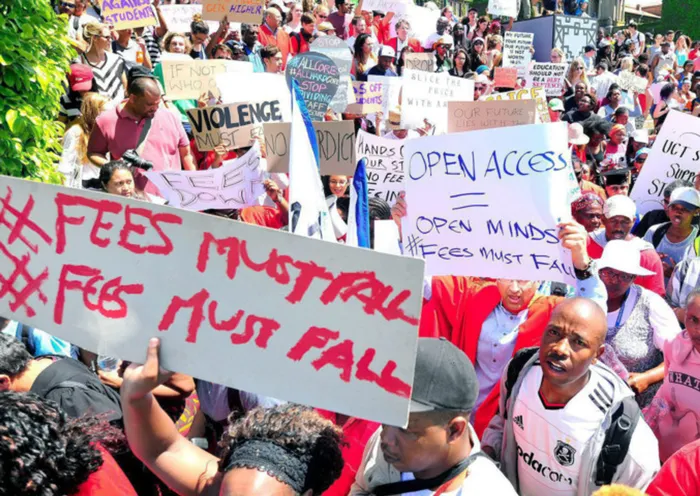
June marks Youth Month in South Africa, a time for reflection on the progress made since the Soweto Uprising. As barriers to education persist, Feenix CEO Cara-Jean Petersen calls for a collective effort to ensure that every student has the opportunity to thrive, not just survive.
Image: HENK KRUGER/FILE
Youth Month Is Not a Moment. It’s a Mirror.
Every June, we pause. We reflect. We remember. Youth Month is a time to ask: how far have we come? What systems still fail our students? How do we move from fragmented efforts to a shared, strategic approach that ensures no student is left behind simply because of their bank balance?
Youth Month calls us to examine the progress made since the 1976 Soweto Uprising, a protest driven by the denial of accessible, equitable education. Today, although the policies have changed, the struggles remain layered. The barriers are no longer only about language or segregation, but about means, systems, and financial inclusion.
We can't forget the blood that has been shed in order for us to have what we have now, to not take it for granted, to not feel entitled in any way, but to see this as a reminder of our call of ownership and responsibility, that It is everyone's responsibility to make quality education accessible to our young people and to help them transition into the working world where they can thrive, and then once again, feed back into the system of making education accessible for the next generation of youth.
The legacy of Fees Must Fall - The catalyst that ignited the birth of Feenix, and the stories of thousands of students we’ve walked alongside, are all evidence that young people are still demanding more. Not for privilege, but for fairness. Not for handouts, but for the opportunity to work hard, and step into the futures they dream of.
Access to education is no longer just about who gets in; it’s about what happens next. Students are fighting battles and burdens that stem far beyond academic tuition, this can be seen as just the tip of the iceberg when one starts looking deeper into the realities faced by countless students across the country; paying for accommodation, food, study materials, access to technology and health care coupled with psychosocial challenges and domestic vulnerabilities. It’s the silence at kitchen tables where conversations about wealth-building, financial literacy, and future planning should be happening, but aren’t.
We believe education must be holistic. It includes what’s taught in lecture rooms, but also what’s shared in mentorship, financial literacy tools, peer learning, and access to community support. Youth Month demands we move beyond lecture halls and into life skills, opportunity pipelines, and emotional support networks.
The systems need fixing, not just funding. Feenix was built to bridge the gap between students in need and the individuals, corporations, and communities that can support them. But as we look to the future, we’re asking deeper questions about the system itself.
Why do some students sit on three bursaries while others go unfunded?
Why are certain degrees funded more than others?
Why do historically underfunded universities still carry less institutional weight?
We don’t have all the answers. But we’re committed to being part of the solution by advocating for collaboration over competition, building platforms that offer transparency, and creating an ecosystem where everyone, from students to funders, can thrive.
Youth Month is our reminder that the road to equality is paved with courage, with action, and with shared ownership. The onus is on all of us to ensure that the students of today become the mentors, leaders, and changemakers of tomorrow. We cannot continue to applaud resilience while doing too little to remove the barriers that demand it.
The students are showing up. The question is: Are we?
* Petersen is the CEO of Feenix.
PERSONAL FINANCE